Research Findings of the JICA Ogata Research Institute Presented at the 26th JASID Spring Conference
2025.08.27
On June 21, 2025, the 26th Spring Conference of the Japan Society for International Development (JASID) took place at Hokkaido University under the theme, “Good Governance for Inclusive Development: Proposal from Hokkaido.” Researchers from the JICA Ogata Sadako Research Institute for Peace and Development (JICA Ogata Research Institute) participated and gave the following presentations:
This roundtable was organized by members of the “People-Centered Digitalization” study group. They introduced their research findings, including the report “Case Studies from the People-Centered Digitalization Study Group: A Human Security Perspective” and the literature review “Reflections on Digital Inequality: From a Human Security Perspective” (both available only in Japanese).
This research explores the impact of digitalization on vulnerable populations from a human security perspective. It also outlines people-centered approaches and perspectives that are considered useful for mitigating risks and maximizing the potential of digitalization. Participants raised various points, such as the importance of clearly identifying the “people” in question, reflections on empowerment and solidarity in digitalization, and long-term macro-level impacts including digital democratization.
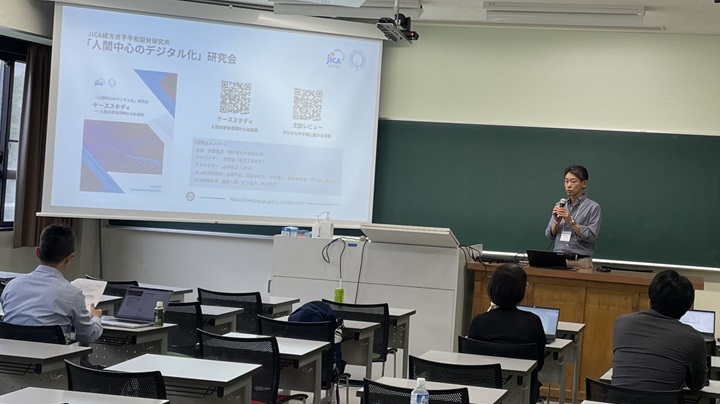
Members of the “People-Centered Digitalization” study group present their research findings.
This roundtable was organized by Research Officer Imai Natsuko . Presenters included Arai Makiko , the lead researcher of the JICA Ogata Research Institute’s ongoing study “Youths in Nairobi Slums: Socio-economic Isolation, Discrimination and the Impact of Intergroup Income-Generating Activities ,” along with scholars from four universities. The session featured reports on case studies from multiple African countries, covering various topics such as career development, entrepreneurship, political participation and violence, and legal consciousness, followed by a dynamic exchange of views.
African youth have often been marginalized from formal institutional frameworks due to structural inequalities and social exclusion, which frequently exclude them from policy support. However, the research revealed that in African societies—where formal and informal institutional boundaries are often blurred—such environments can actually become catalysts for youth to pursue self-realization and drive social transformation. Participants noted that policymakers often lack a sufficient understanding of the realities facing marginalized groups. Bridging the gap between institutional frameworks and on-the-ground conditions is recognized as a key issue moving forward.
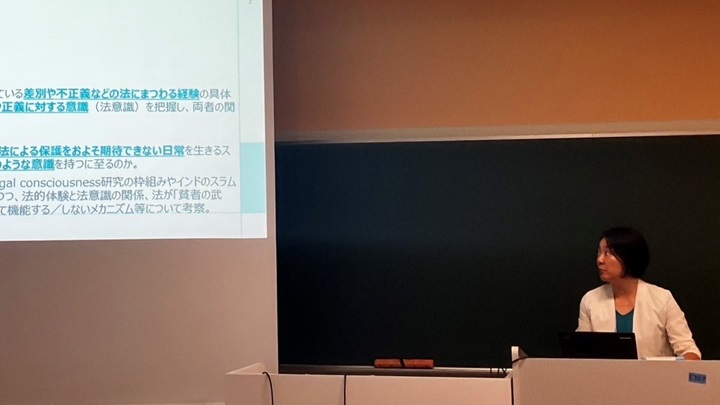
Arai Makiko, lead researcher of the JICA Ogata Research Institute’s ongoing study “Youth in Nairobi Slums: Socio-economic Isolation, Discrimination and the Impact of Intergroup Income-Generating Activities”
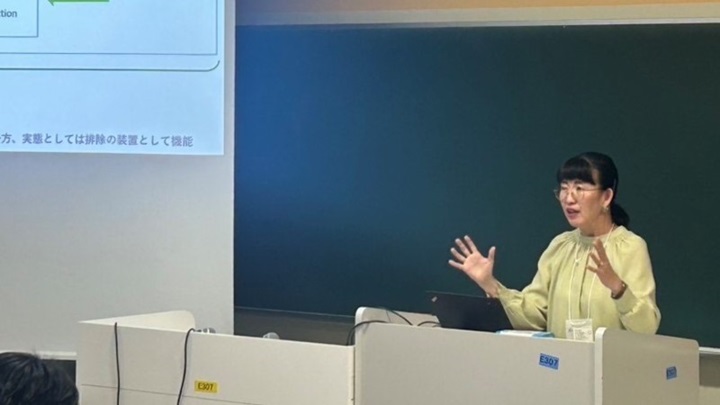
Imai Natsuko, Research officer and organizer of the roundtable
Presenting at the panel “Japan's International Cooperation in Practice: Approaches to Infrastructure, Climate Adaptation, and Human Resource Development ,” Kaizuka James shared the results of some of his findings on the project “Making Japan’s Business Africa’s Business: Exploring the Impacts of the ABE Initiative ,” focusing on the issues of “positionality” and “understanding” in the efficacy of the ABE Initiative. Kaizuka’s panel was moderated by Professor Kurokawa Motohiro of the Takasaki City University of Economics and received a positive evaluation.
Kaizuka also visited the Hokkaido Museum in Sapporo as part of a JASID-organized tour, where he furthered his knowledge on Hokkaido’s development and its impact on the Ainu people. As Kaizuka’s work involves facilitating teaching about Japan’s development experience, he hopes to use what he learned about Hokkaido in future classes provided by the JICA Development Studies Program , to add a different perspective on Japan’s path to modernity.
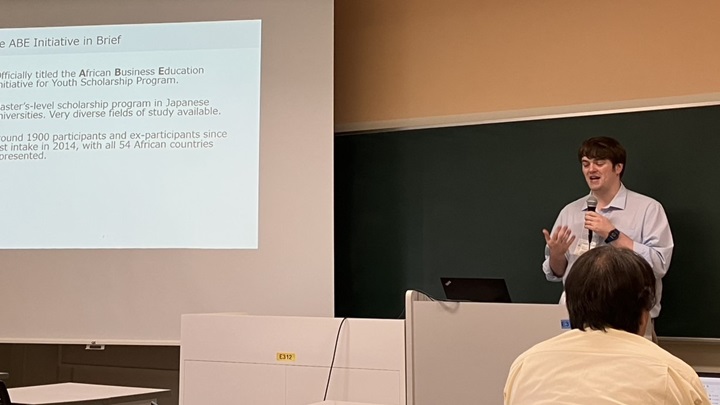
Research Fellow Kaizuka James presents on the ABE Initiative.
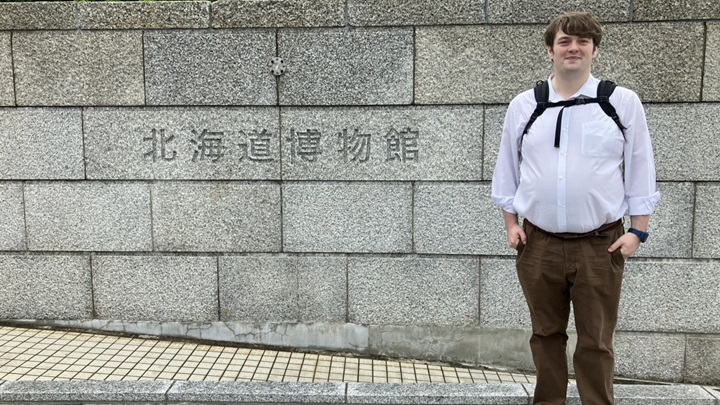
Research Fellow Kaizuka James visits the Hokkaido Museum as part of a JASID-organized tour.

事業事前評価表(地球規模課題対応国際科学技術協力(SATREPS)).国際協力機構 地球環境部 . 防災第一チーム. 1.案件名.国 名: フィリピン共和国.

事業事前評価表(地球規模課題対応国際科学技術協力(SATREPS)).国際協力機構 地球環境部 . 防災第一チーム. 1.案件名.国 名: フィリピン共和国.

事業事前評価表(地球規模課題対応国際科学技術協力(SATREPS)).国際協力機構 地球環境部 . 防災第一チーム. 1.案件名.国 名: フィリピン共和国.

事業事前評価表(地球規模課題対応国際科学技術協力(SATREPS)).国際協力機構 地球環境部 . 防災第一チーム. 1.案件名.国 名: フィリピン共和国.

事業事前評価表(地球規模課題対応国際科学技術協力(SATREPS)).国際協力機構 地球環境部 . 防災第一チーム. 1.案件名.国 名: フィリピン共和国.